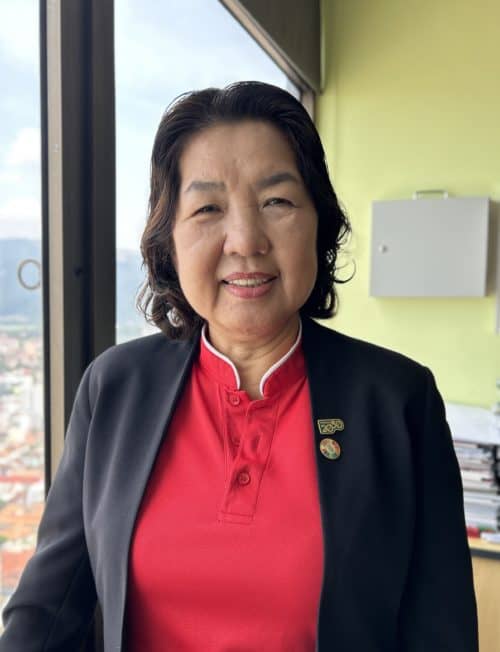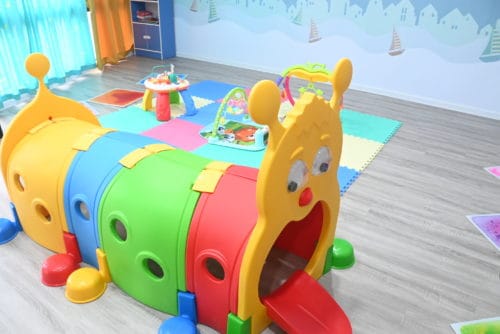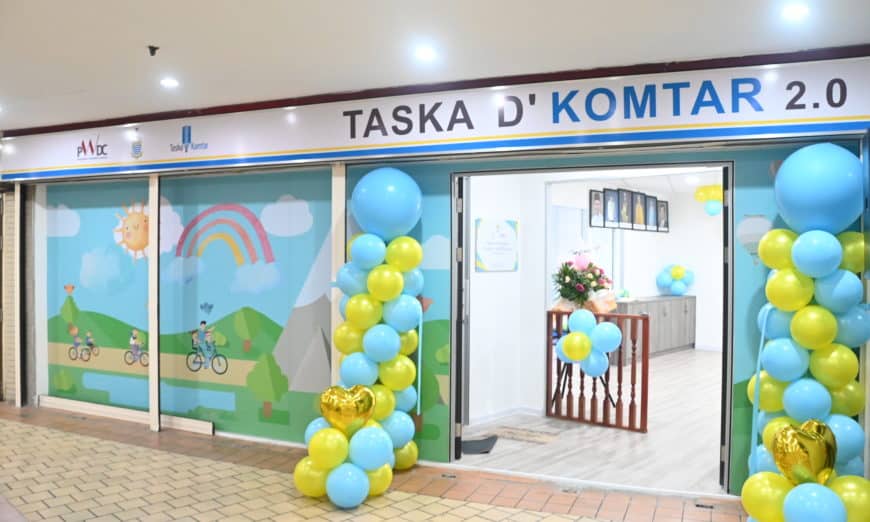TASKA D’ Komtar 2.0 is set to open its door in a month or two, pending the operating licence.
Penang Women’s Development Corporation (PWDC) chief executive officer Ong Bee Leng revealed that the new nursery centre will have a capacity of 32 children, similar to its predecessor.
Both centres, located on Level 4 in Komtar, cater to children four years and below, with one of their parents being a government servant.

“Since we established our first nursery centre in Komtar in 2014 to meet the childcare needs of the state’s civil servants, our waiting list has grown longer, with 10 to 20 children on the list. A lot of parents have requested PWDC to open up more centres.
“Statistics have shown that female labour force participation rate drastically drops after the age of 30 due to childbearing years. This means that as one grows older, fewer women work.
“One of the ways to overcome this issue is to provide more childcare centres, and better still if there are set up at the workplaces. That is why PWDC is in it.
“We can say that we are quite proud of Penang’s unique approach to address this issue with workplace childcare centres,” Ong told Buletin Mutiara in an interview.
The Penang Development Corporation sponsored the renovation of two shop lots at Komtar, investing RM150,000 to set up Taska D’ Komtar 2.0 as part of its corporate social responsibility. Overcoming water supply challenges, the centre will be privately operated but subsidised by the state government for rental and utilities.


Upon reaching the age of five, children from the nursery can then proceed to Tadika Whytehouse at Tech Dome Penang in Komtar for affordable and high-quality preschool education, enabling their mothers to continue working.
Ong expressed hopes that Taska D’ Komar 2.0 will inspire both public and private sectors to establish childcare centres at their workplaces so that more mothers can stay in the workforce.
She highlighted that PWDC is currently conducting focus group discussions involving operators, the Social Welfare Department, employers, and parents to devise plans for safe, affordable, and accessible childcare centres with a curriculum that emphasises quality education.
While multinational companies can more easily establish childcare centres near their workplaces, local enterprises face challenges due to a lack of critical mass. PWDC is exploring the feasibility of setting up a consortium where multiple companies collaborate to operate a shared childcare centre.
Emphasising the importance of a child’s formative years (from zero to six), Ong highlighted the role of childcare centres in building character and attitudes and providing a strong foundation for their future success. By supporting working mothers, the centre also contributes to the economy and families’ well-being.
Ong noticed a positive trend of fathers actively participating in childcare by sending their children to nurseries and kindergartens. This leads to a special bonding with their children.
“I notice that younger couples nowadays are together in raising their child, and this should be the way. It influences the child and helps the child see a very holistic view of father and mother in their lives,” Ong said.
Story by K.H. Ong
Pix by Law Suun Ting and Nur Ashikin Ismail

